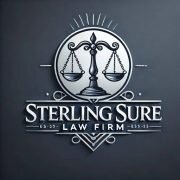Best Toxic Mold Lawyers in Nigeria
Share your needs with us, get contacted by law firms.
Free. Takes 2 min.
Or refine your search by selecting a city:
List of the best lawyers in Nigeria
About Toxic Mold Law in Nigeria
Toxic mold is becoming an increasing concern for residents in Nigeria, especially in areas with high humidity and poor building standards. Toxic mold refers to certain types of molds that produce toxic substances affecting human health. While there is growing awareness of the health risks associated with exposure to toxic mold, the legal framework in Nigeria surrounding this area is still evolving. Understanding your rights and seeking proper legal guidance becomes imperative if you are affected by toxic mold.
Why You May Need a Lawyer
There are several situations where legal help might be required in cases of toxic mold in Nigeria. For instance, you might need a lawyer if you are experiencing health problems due to mold exposure and need to seek compensation from a landlord or property owner. Legal assistance may also be vital if you are a tenant facing eviction due to the insistence on mold remediation or if you are a property owner needing to defend against claims of negligence. Additionally, businesses and landlords might require guidance in ensuring compliance with safety standards to prevent mold-related liabilities.
Local Laws Overview
Nigeria does not yet have specific laws targeting toxic mold; however, several legal avenues can be pursued in relevant cases. Key aspects of law that could relate to toxic mold include health and safety regulations, tenancy agreements, and property law. The Lagos State Tenancy Law and other regional tenancy laws might have provisions that can be interpreted to cover mold controversies. Public health laws may also provide leverage in cases where mold is considered a threat to health and safety.
Frequently Asked Questions
What is toxic mold?
Toxic mold refers to certain types of molds capable of producing mycotoxins, which can be harmful to human health when inhaled or contacted.
What health problems are associated with toxic mold exposure?
Exposure to toxic mold can cause symptoms such as respiratory issues, skin irritation, headaches, and in severe cases, neurological problems.
How can I tell if there's toxic mold in my home?
Indicators of toxic mold include visible mold growth, a persistent musty odor, and health symptoms that improve when you leave the home but worsen upon return.
Can I demand my landlord to remove toxic mold?
Yes, tenants have the right to a safe living environment, so you can request that the landlord address any mold issues, provided they fall under maintenance obligations.
How can I prove my health issues are related to toxic mold?
Medical documentation, environmental assessments, and expert testimony can help establish a link between your health problems and mold exposure.
What steps should a landlord take to prevent mold issues?
Landlords should ensure their properties are well-ventilated, regularly inspected for plumbing leaks, and maintain humidity levels to prevent mold growth.
Can I sue for damages if I am affected by toxic mold?
While challenging, it is possible to sue for damages under personal injury or negligence claims if you can prove the landlord's failure to maintain the property led to your health issues.
What is the government's role in addressing toxic mold?
The government’s role mainly involves enacting building codes and public health regulations to mitigate mold risks. Enforcement remains a challenge in Nigeria.
Is there insurance coverage for mold damage?
Most home insurance policies in Nigeria do not cover mold damage as part of their standard coverage; however, you can check with your provider for specific mold-related incidents.
How long do I have to take legal action for toxic mold exposure?
The time frame varies based on the type of claim but generally falls within the general statute of limitations for personal injury and property damage cases.
Additional Resources
Governmental bodies such as the Nigeria Center for Disease Control (NCDC) might offer guidance related to public health issues caused by mold. The Nigerian Bar Association could be a useful resource for finding experienced legal practitioners in environmental or property law. Public health advocacy groups may also provide assistance or additional information on toxic mold litigations.
Next Steps
If you are in need of legal assistance regarding toxic mold, consider the following steps: document any health symptoms and corresponding medical consultations, gather evidence of mold presence such as photographs and inspection reports, and consult a lawyer specializing in environmental health or property law. You may reach out to local legal aid organizations if affordability is an issue. Prompt action will better protect your health and ensure that your rights are upheld.
Lawzana helps you find the best lawyers and law firms in Nigeria through a curated and pre-screened list of qualified legal professionals. Our platform offers rankings and detailed profiles of attorneys and law firms, allowing you to compare based on practice areas, including Toxic Mold, experience, and client feedback.
Each profile includes a description of the firm's areas of practice, client reviews, team members and partners, year of establishment, spoken languages, office locations, contact information, social media presence, and any published articles or resources. Most firms on our platform speak English and are experienced in both local and international legal matters.
Get a quote from top-rated law firms in Nigeria — quickly, securely, and without unnecessary hassle.
Disclaimer:
The information provided on this page is for general informational purposes only and does not constitute legal advice. While we strive to ensure the accuracy and relevance of the content, legal information may change over time, and interpretations of the law can vary. You should always consult with a qualified legal professional for advice specific to your situation.
We disclaim all liability for actions taken or not taken based on the content of this page. If you believe any information is incorrect or outdated, please contact us, and we will review and update it where appropriate.
Browse toxic mold law firms by city in Nigeria
Refine your search by selecting a city.











